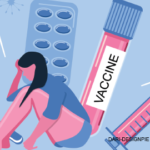(Reuters)—Medications that suppress the immune system—necessary for many chronic diseases—do not worsen outcomes of COVID-19 cases, new data suggest.
Researchers looked back at 2,121 adults hospitalized for COVID-19 between March and August, including 108 who were taking immunosuppressive drugs (primarily prednisone, tacrolimus or mycophenolate mofetil).
After accounting for patients’ general baseline health status, researchers found no significant differences between those who did or did not take immunosuppressive drugs in the risk of needing mechanical ventilation, the risk of dying, or the amount of time they were hospitalized.
“Our results contribute to a growing body of evidence that should provide reassurance to clinicians and patients using chronic immunosuppressive medicines,” the researchers wrote in Clinical Infectious Diseases.1
Reference
- Andersen KM, Mehta HB, Palamuttam N, et al. Association between chronic use of immunosuppresive drugs and clinical outcomes from coronavirus disease 2019 (COVID-19) hospitalization: A retrospective cohort study in a large U.S. health system. Clin Infect Dis. 2021 Jan 7;ciaa1488. Online ahead of print.



